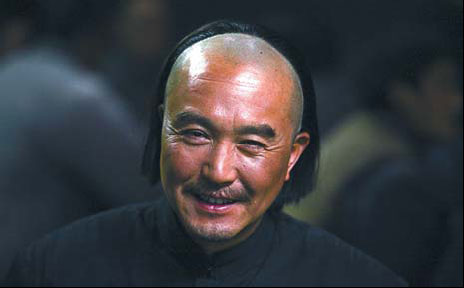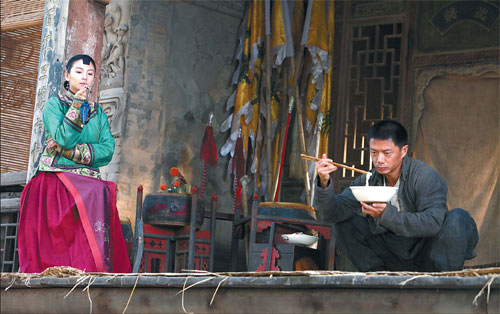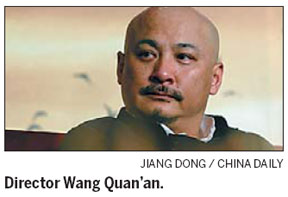



In the following two years, Wang made two more art-house films. Tuya's Marriage about an Inner Mongolian woman's choice to take her disabled husband into her new marriage, which won a Golden Bear in Berlin; and Apart Together about a veteran's return from Taiwan to the mainland, which won silver for best screenplay in Berlin.
Related: Kitty Zhang Yuqi covers magazine OK Jingcai
In 2010, Wang joined his powerful producer, Zhang Xiaoke, general manger of Shaanxi Tourism Group. When filming of White Deer Plain finally started, the budget had increased to 100 million yuan.
For an art-house film in China, the budget was huge and meant that while Wang targeted international film festivals before, he had to win over a much wider group in his homeland with the new film.

While his producer tried various means to meet this end, including building a recreational theme park in Shaanxi, Wang gathered some of China's most well received actors such as Zhang Fengyi and Wu Gang to please audiences.
He let the actors do only two things before shooting started: practice the Shaanxi dialect and do farm work.
"For me, the book tells how Chinese people were stunned by the fall of the imperial system and they have been confused building a new system of values, until now."
Chen, the original writer, confronts the characters, mostly farmers, with the social upheavals from the 1910s to the 1940s - the downfall of Qing Dynasty (1644-1911) up to the dawn of New China.
While some senior figures try to hold on to old values, the younger generation eagerly embraces fresh ideas - some join the Communist Party, others go over to the Kuomintang, and a few become opportunists seeking personal gain.
To digest more than 20 major characters' life choices in a span of 50 years was so challenging that Wang's first cut was 220 minutes. Shortly before he took it to 2012's Berlin festival as the only competing Chinese film, he edited it down to 160 minutes, removing mainly scenes after 1938, one year after the War of Resistance against Japanese Aggression (1937-45) started. The film won a Silver Bear for best cinematography.
In the 156-minute re-edited version, currently in Chinese theaters, the story ends in 1938. Some sex scenes are thought to have been cut. "I never planned to make the shots sensuous," Wang says. "They must work for the portrayal of the characters. Every shot is driven by the drama."
Although the final version screened now is very different from the original cut, Wang is not complaining and would rather move on. "I feel more than happy the film is released. The turbulence the film experienced is nothing compared to what the characters in the book have been through," he says. "You never know when the perfect timing is to make a film. If you have the drive and determination for something, you go for it."